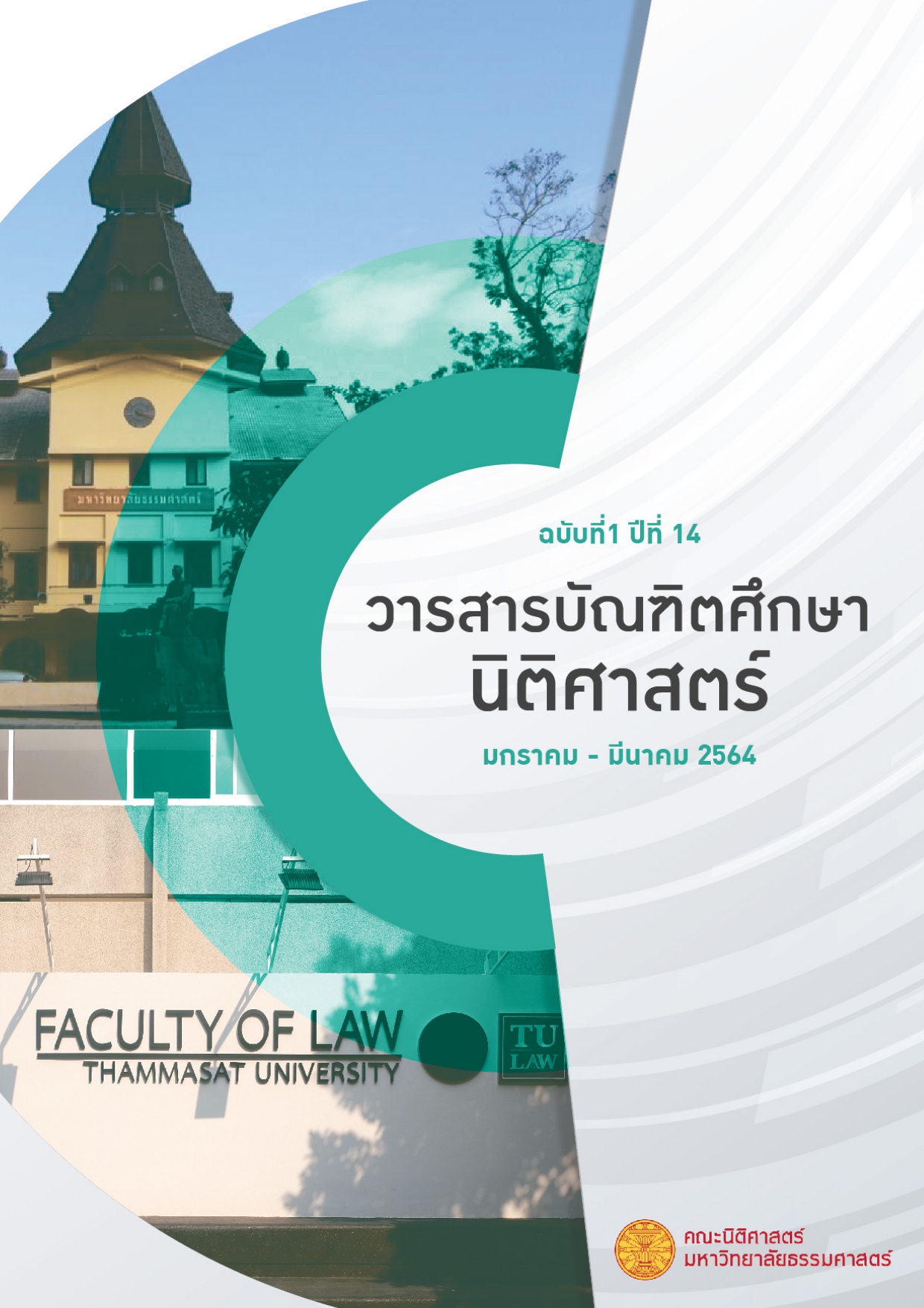CIVIL LIABILITY OF THE OWNER OR OPERATOR OF ANY SOURCE OF POLLUTION FOR DAMAGE FROM SOIL POLLUTION : COMPARATIVE STUDY ON THE ENHANCEMENT AND CONSERVATION OF THE NATIONAL ENVIRONMENTAL QUALITY ACT AND UNITED STATES LAWS
Keywords:
the owner or possessor of any source of pollution, polluters, civil liability for pollution damageAbstract
The aim of the study is to present and analyze the issues of the civil liability for persons found liable in a civil action and compensation for pollution damage. in order to be aware and crucial in the current environmental issues. Thailand has enacted laws to reform and protect the national environment and natural resources since 197๕, civil liability of which rooted in U.S. environmental laws named The Comprehensive Environmental Response, Compensation, and Liability Act: CERCLA due to U.S. faced on an environmental problem. The problem is caused by the accumulated pollution from industrial operations since industrial revolution period. Thus, U.S. government has focused on the environmental solutions. Despite the fact that Thailand enacted environmental laws, the weaknesses in civil liability on the environmental law enforcement still appear occasionally. As a result of many environmental law issues have occurred, U.S. Environmental law, CERCLA was quoted for comparative studies and analyzed to propose the spirit of the law and an appropriate law for diagnose environmental case of Thailand.
This is The Enhancement and Conservation of the National Environmental Quality Act, Section 96 about Civil Liability for Pollution Damage. The study reveals that a weak enforcement of environmental law is the determination of a person who is held liable for the damages. In the act only states that the owner or possessor of such source shall be liable to pay compensation or damages. It does not covered the initial owner or possessor who may actually commit an unlawful act or omission in the past which the damages at the source did not appear immediately because some pollution of the source takes time to be shown up or allow the damages accumulate until the limit is over. In case of environmental damage from cumulative pollution, the owner and operators of the source of pollution are not be the only party who involved in producing pollution that destroy the environment. Regardless of pollutants, which the pollution that appears to be caused by a pollution that appears the severe damage suddenly, or an accumulated pollution that may not immediately visible appears the damaged can lead to bodily harm, death or health injury which can caused a severe life threat. Moreover the issue that the act state does not include all polluting persons whose act causes the damages is inconsistent with the fundamental principles of environmental law on Polluter Pays Principle. Unlike the comparative study with U.S. environmental law, CERCLA states more comprehensive than Thai Enhancement and Conservation of the National Environmental Quality Act B.E.2535. CERCLA casts a wide net for potential responsible parties including the current owner, past owner, arranger and transporter for disposal of a hazardous substance at a site. In addition, CERCLA limits the defenses available to avoid CERCLA liability clearly as well as the compensations for a person who is liable to pay when compared with Thai environmental law which is more complicated.
In conclusion this study argues that The Enhancement and Conservation of the National Environmental Quality Act, Section 96 shall be amended to be “If leakage or contamination caused by or originated from any source of pollution is the cause of death, bodily harm or health injury of any person or has caused damage in any manner to the property of any private person or of the State, the current owner or possessor of such source and past owner or possessor at time the pollution occurred will be held liable for any release of toxic substance that occurred willfully or negligently during their possession or control of the land to pay compensation or damages therefor, regardless of whether such leakage or contamination is the result of a willful or negligent act of the owner or possessor therefor…” according to CERCLA study in order to increase the clarity of Civil Liability by broadening the reach of all environmental discrimination cases and providing the effective enforcement of the environment laws.
Downloads
Published
Issue
Section
License
บทความหรือข้อความคิดเห็นใด ๆ ที่ปรากฏในวารสารบัณฑิตศึกษานิติศาสตร์เป็นความรับผิดชอบของผู้เขียนบทความโดยเฉพาะ คณะนิติศาสตร์ มหาวิทยาลัยธรรมศาสตร์ และกองบรรณาธิการไม่จำเป็นต้องเห็นด้วย



